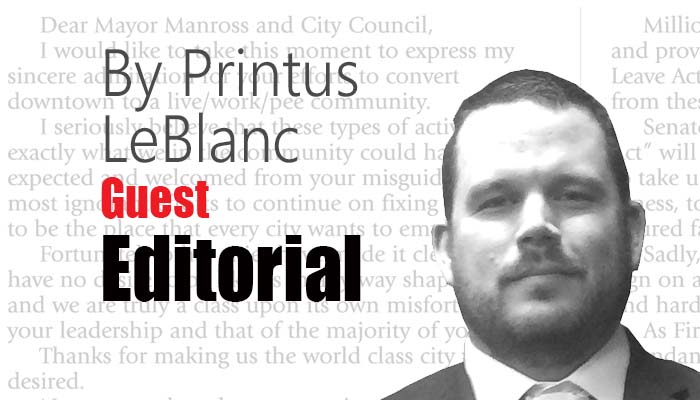Davos is a small town in the Swiss Alps of eastern Switzerland. It is a popular ski resort that also happens to host burning man for the globalist elite of the world, also known as the World Economic Forum (WEF). The WEF is a collection of politicians, dictators, elitist academics, and business conglomerates with the apparent mission to create a globalist society that banishes borders and constitutional rights. Needless to say, many people there are not a fan of President Trump, which is the perfect reason for him to show up.
President Trump is breaking tradition by crashing the Church of Globalism’s annual January meeting, joining Bill Clinton, in 2000, as the only sitting U.S. Presidents to attend the WEF. However, when Bill Clinton went to Davos he was pushing globalism, President Trump is showing up with his “America First” agenda being scoffed at by other attendees.
Trump indeed is going into the lion’s den. The theme of this year’s forum is “Creating a shared future in a fractured world,” a presumed shot at President Trump. He is set to deliver the last address of the conference, which is normally considered the “keynote,” but a spokesperson for Davos said there are no keynotes in the program, and the President will deliver a special address.
While the elites at the conference may not like President Trump’s use of Twitter or his language, they ought to love his domestic economic plan. The media and politicians on the left criticized the administration for the tax cuts legislation, feeling it wouldn’t help the average American citizen. Since the bill passed, hundreds of millions in bonuses have been awarded to employees and billions in business investment have been marked for the U.S.
The tax cuts are so productive, the International Monetary Fund (IMF) had to revise the estimated global growth for 2018 and 2019. The IMF increased the expected global growth by .2 percent and declared half of the increase was because of the U.S. tax cuts. I’m pretty sure those that complained about the tax cuts will still accept the monetary rewards.
This year, India seems to be the talk of Davos. India is pushing their “Make In India” campaign around the world, but particularly hard in Davos. India launched the campaign in 2014 in hopes of attracting more foreign direct investment. For the last few years, an Indian café named India Adda was renamed the Make In India Lounge to push the agenda at the globalist forum.
Indian Prime Minister Narendra Modi delivered the opening speech at the Church of Globalism this year. In the speech, Modi warned globalization is being threatened stating, “bilateral and multilateral trade negotiations have come to a kind of standstill.” He further complained that “forces of protectionism are raising their heads,” sending a shot at President Trump. The Prime Minister is apparently not a fan of President Trump blasting lopsided trade deals.
Modi has a problem himself with the Make In India campaign, however, said Americans for Limited Government President Rick Manning in a statement, “India’s Prime Minister Nanendra Modi is the ultimate hypocrite. His nation, with the sixth largest economy in the world, gets the benefit of the same trade rules as Bangladesh, and has benefitted from $4.7 billion of General System of Preferences plus another $28 billion of foreign direct investment from the U.S. in 2016 alone. While India benefits from its own protectionist policies, with high tariffs, intellectual property theft and forced price controls for those who invest in India, Modi wants to lecture the world as if India was some pinnacle of free trade.”
A recent Americans for Limited Government Foundation report by Alex Holcomb, College of Business Administration, University of Texas at El Paso, details the four key problems with doing business in India. The report titled, “Foreign Direct Investment and Regulatory Uncertainty: Failures of the ‘Make in India’ Campaign,” noted:
1. India must offer equitable market access without requiring technological transfers,
2. provide veritable protection for intellectual property without the threat of compulsory licensing,
3. reduce its use of investment reducing price controls, and offer a transparent, predictable,
4. long-term regulatory regime.
Manning added, “President Donald Trump has held out a hand of friendship to the Indian government during his first year in office and given Modi’s new-found interest in rolling back protectionism, Trump should open the door to a bilateral U.S.-India trade deal by removing India from the GSP and closing the door on India’s grotesque trade barriers forever. We are glad that Prime Minister Modi has seen the light and wishes to join the developed world in free, fair and reciprocal trade — now he needs to show that his Make in India isn’t just a public relations fraud.”
Davos truly is the playground of the global elite. They meet to decide the fate of billions around the world without having to live by the same rules. President Trump is on a mission. He is going there to let the world know America is open for business. While there, Trump should remind Modi that India does not need to be on the Generalized System of Preferences list anymore. India came to Davos because they believe they are a world player, it is time they are treated like one.
Printus LeBlanc is a contributing editor at Americans for Limited Government.





